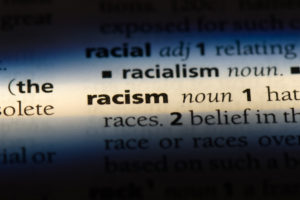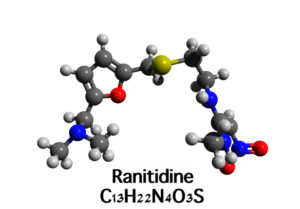A recent court decision holds that generic drug manufacturers cannot use federal preemption to avoid liability for failing to warn of their drugs’ dangers. The court in Kellogg v. Wyeth held, as Public Justice and co-counsel the Center for Constitutional Litigation (CCL) urged, that the approval of a generic prescription drug’s label by the U.S. Food and Drug Administration (FDA) does NOT preempt claims against the drug makers for failing to warn consumers of known risks.
This decision is critical because the FDA has been trying to dramatically expand federal preemption, preventing victims of dangerous drugs from holding manufacturers accountable under state law. In Wyeth v. Levine, which the U.S. Supreme Court is about to decide, Public Justice filed an amicus brief opposing preemption of claims against a brand name drug manufacturer on behalf of the New England Journal of Medicine‘s editors and authors. Even though Wyeth does not involve claims against generic drug manufacturers, the Court’s ruling will likely be relevant to the battle over generic drug label preemption. But no matter what the Supreme Court says in Wyeth v. Levine, the cutting edge attorneys at Public Justice will need to keep fighting. That’s why the decision in Kellogg is so important.
Public Justice represents Ethel Kellogg, who was prescribed metoclopramide to remedy her gastroesophageal reflux disease. The drug caused her to suffer serious and permanent tardive dyskinesia, a neurological disorder that causes facial grimacing, lip twisting, tongue thrusting, gait instability, difficulty swallowing, and difficulty controlling her hands and arms. Ms. Kellogg sued Wyeth, manufacturer of the name brand of the drug and several manufacturers of generic metoclopramide, alleging (among other things) that the manufacturers failed adequately to warn of the drug’s side effects.
The generic drug manufacturers moved to dismiss the case, arguing that the failure-to-warn claims conflict with — and thus are preempted by — an FDA regulation that requires the labels of general prescription drugs to contain the same language as the FDA-approved label for the brand-name version of that drug. Wyeth did not file a motion to dismiss.
In December, United States District Court Chief Judge William K. Sessions III (D. Vermont) flatly rejected the generic drug manufacturers’ preemption argument, which was based on the claim that they are prohibited from strengthening their drug labels without prior agency approval. The Court held that "the obligation to revise a label to include a warning as soon as there is reasonable evidence of an association of a serious hazard with a drug applies to both generic and listed drug manufacturers." Given this obligation, the Court ruled, there was no conflict between the plaintiffs’ claims and the FDA’s original decision to approve the label for the brand name drug. The Court went on to reject the FDA’s contrary position as "inconsistent with the unambiguous language of the regulations" and thus not entitled to any deference.
To read Chief Judge Sessions’ decision rejecting FDA preemption in Kellogg, click here.
To read the Public Justice brief in Kellogg, click here.
The victory in Kellogg is part of the Public Justice organization’s Access to Justice Campaign and Federal Preemption Project, which has been successfully fighting federal preemption for over two decades. If you are facing a FDA preemption battle — or any preemption question — please don’t hesitate to contact Public Justice for help.
Congratulations and thanks to lead counsel Louis Bograd of the Center for Constitutional Litigation, co-counsel Public Justice Staff Attorney Leslie A. Brueckner, and plaintiff’s trial counsel, Ralph Pittle of Bellevue, Washington, Hector Pineiro of Worcester, Massachusetts, Robert H. Beadle of Boston, Massachusetts, and Jerome O’Neil of Burlington, Vermont for this great victory. Congratulations and thanks to you, too, for making this victory possible.
To make a tax-deductible gift in support of our Access to Justice Campaign, Federal Preemption Project, and other vital public interest work, click here.

A resident of Honolulu, Hawaii, Wayne Parsons is an Injury Attorney that has dedicate his life to improving the delivery of justice to the people of his community and throughout the United States. He is driven to make sure that the wrongful, careless or negligent behavior that caused his clients' injury or loss does not happen to others.










Comments for this article are closed.